Compiling a list of the greatest pianists in history is no simple task—not because there are too few, but because there are so many extraordinary talents to choose from. For centuries, the piano has been a centrepiece of musical expression, with virtuosos not only mastering the instrument but also leaving behind a rich legacy of compositions. Today, we continue to celebrate their genius through live performances and recordings. In this article, we highlight 16 of the most iconic pianists of all time—artists whose impact goes far beyond technical skill, shaping the course of music through innovation, passion, and brilliance.
| 🎹 Pianist | 📅 Life/style | 📝 Artistic Profile |
|---|---|---|
| Wolfgang Amadeus Mozart | 1756-1791 Classical Period | Mastered every major genre of his time with effortless melodic invention and formal clarity. |
| Ludwig van Beethoven | 1770-1827 Late Classical – Early Romantic Era | Revolutionised classical music with dramatic intensity, even after losing his hearing at 28. |
| Frédéric Chopin | 1810-1849 Romantic era | Renowned for his lyrical, intimate piano works that demand both finesse and emotional depth. |
| Franz Liszt | 1811-1886 Romantic Era | His compositions rank among the most technically demanding ever written. |
| Johannes Brahms | 1833-1897 Mid-Romantic Era | Merged Classical structure with Romantic expressiveness. |
| Claude Debussy | 1862-1918 Impressionist Period | Originally studied the piano but became a pioneer of musical Impressionism. |
| Sergei Rachmaninoff | 1873-1943 Romantic Era | Praised for his lush, emotionally intense playing and towering virtuosity as both pianist and composer. |
| Arthur Rubenstein | 1887-1982 Classical Concert Pianist | Celebrated as one of the greatest interpreters of Chopin. |
| Myra Hess | 1890-1965 Classical Concert Pianist | Lifted public morale high with lunchtime concerts during the London Blitz. Also celebrated for her refined interpretations of Bach and Beethoven. |
| Claudio Arrau | 1903-1991 Classical Concert Pianist | Spanned Baroque to 20th-century works with intellectual depth. |
| Vladimir Horowitz | 1903–1989 Virtuoso Concert Pianist | Electrifying technique and emotional intensity in performance. |
| Art Tatum | 1909-1956 Jazz | Astonishing speed and a unique "straight-finger" technique. |
| Martha Argerich | 1941-present Classical Concert pianist | Renowned for her fiery interpretations and formidable technique, especially in Romantic repertoire. |
| David Helfgott | 1947-present Classical Concert pianist | Known for his expressive, unconventional performance style. |
| Michel Petrucciani | 1962-1999 Jazz | Renowned for lyrical phrasing and rhythmic energy, transcended physical challenges with soulful expression and dazzling technique |
| Lang Lang | 1982-present Classical Concert pianist | Blended showmanship with virtuosity to become the first Chinese classical pianist of global renown. |

Wolfgang Amadeus Mozart
A prodigy on both piano and violin, Mozart started performing in courts and salons at the age of 4.

Like any composer, Mozart didn't develop his unique style alone. Throughout his life, he rubbed shoulders with other composers and instrumentalists who influenced his musical development. He would often copy and replay pieces of theirs, adding his own flourishes.
Mozart died tragically young, at 35. He left behind a magnificent catalogue for someone that age because he composed at great speed with the utmost ease.
Alongside Beethoven, Mozart is one of the richest and most prolific classical composers. The Köchel Catalogue was created to assemble all his pieces in chronological order, and it counts 626 different pieces! If you're taking piano lessons, you've likely played or heard your teacher play at least one selection from it.
Ludwig van Beethoven
We know that Beethoven was baptised in 1770, in Bonn (Germany), but not exactly when he was born.
We know about his tragic hearing loss, and that he died relatively young. We also know that he was, and remains, the best pianist of all time.
It's been said that he sawed the legs off his piano so he could feel the instrument's vibrations through the floor.
There's some debate over this oft-repeated anecdote; we may never know whether it's true. Still, he gave the world 35 piano sonatas and 9 symphonies, despite going deaf at 27.

Today, we revere him as one of the greatest composers of all time.
Frédéric Chopin
Chopin was born in 1810 in a small town outside of Warsaw. His family soon discovered they had a piano prodigy to nurture, which they did so well that he was composing music before his 20th year.

Writing chiefly for solo piano, Chopin left us with so many wonderful pieces and recordings - including concertos, waltzes, preludes and his famous nocturnes.
Chopin's hands were small, but his fingers were long and slender, especially his pinky fingers. Those long digits proved particularly useful for piano playing.
Chopin hated any kind of force at the instrument, though he didn't mind emphatic tones.
His playing style was more in line with Kalkbrenner and Paganini. His music had a great influence on his friend, Franz Liszt, and others who came after.
Chopin Selections to Try
4️⃣ Les Quatres Ballades pour Piano
🅰 Prelude in A Major
🌛 Nocturne Number 2 in E Flat
Franz Liszt
Born in 1811, this Hungarian pianist was a pioneer, both for his playing style and his compositions.
Liszt gained notoriety in Europe during the early nineteenth century for his extensive virtuosic skill as a pianist. He became a friend, musical tour promoter and partner to the other famous names of his time, including Frédéric Chopin, Charles-Valentin Alkan and Richard Wagner.
Listz created many compositions, he was one of the leading representatives of the New German School (German: Neudeutsche Schule). His legacy forms a diverse body of work that influenced his creative contemporaries.
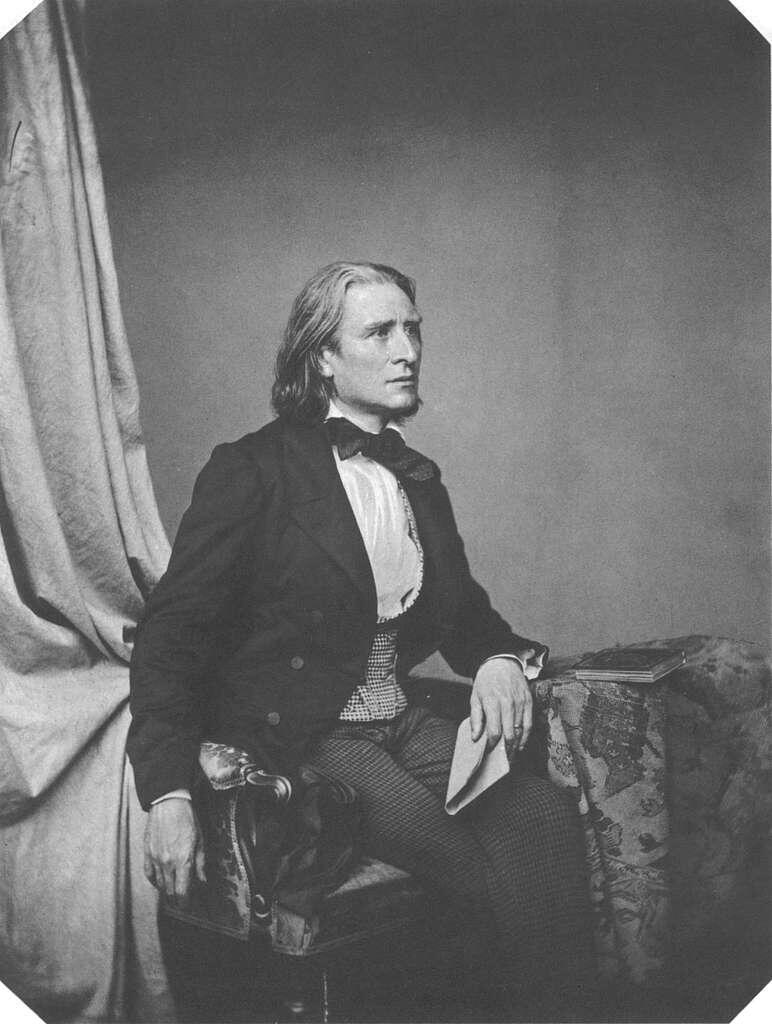
Composing trends that emerged in the 20th century can be traced back to Liszt's original compositions. His famous contributions include the symphonic poem, thematic transformation and innovations in harmony.
Johannes Brahms
Johannes Brahms(1833–1897) was a seminal figure of the Romantic era, celebrated not only as a composer but also as a deeply expressive classical pianist. He was known for marrying lush harmonies with classical structure.
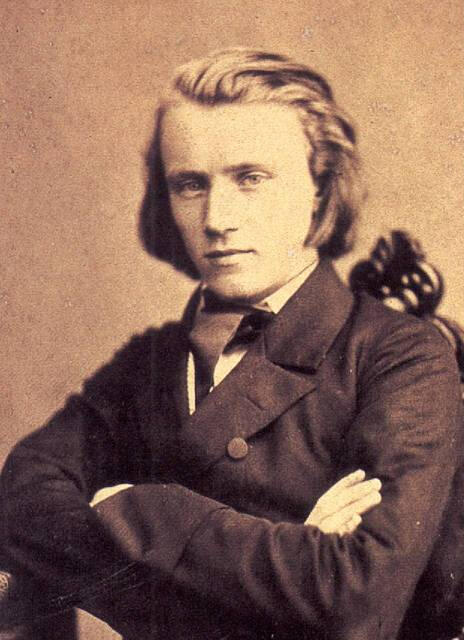
Born in Hamburg, Germany, in a modest family, Brahms was raised by a double bassist father. He showed musical promise from a young age and began performing in local taverns to help support his family financially.
His 47-year career produced some of the most enduring works in Western music, from chamber music to grand symphonies, including what many consider one of the most frequently performed compositions of all time.
A virtuoso of counterpoint, Brahms is often ranked alongside Bach, Mozart, and Beethoven.
His piano compositions remain central to the modern repertoire, frequently interpreted by leading British pianists and admired for their intellectual rigour, emotional nuance, and technical mastery by audiences worldwide for their depth and technical demands.
Claude Debussy
Claude Debussy definitely rates a mention when it comes to the most beautiful works ever written for the piano. On an entirely subjective note, he may be our favourite ever composer for piano.
André Boucourechliev credits him as a one-man musical revolution of the 20th century, even though Debussy himself rejected the title of 'first Impressionist composer'.
Defying the musical conventions of his days, his non-conformist musical palette produced works that are still difficult to classify.
Debussy used his grounding in piano technique to break all the rules and express himself with complete musical freedom.
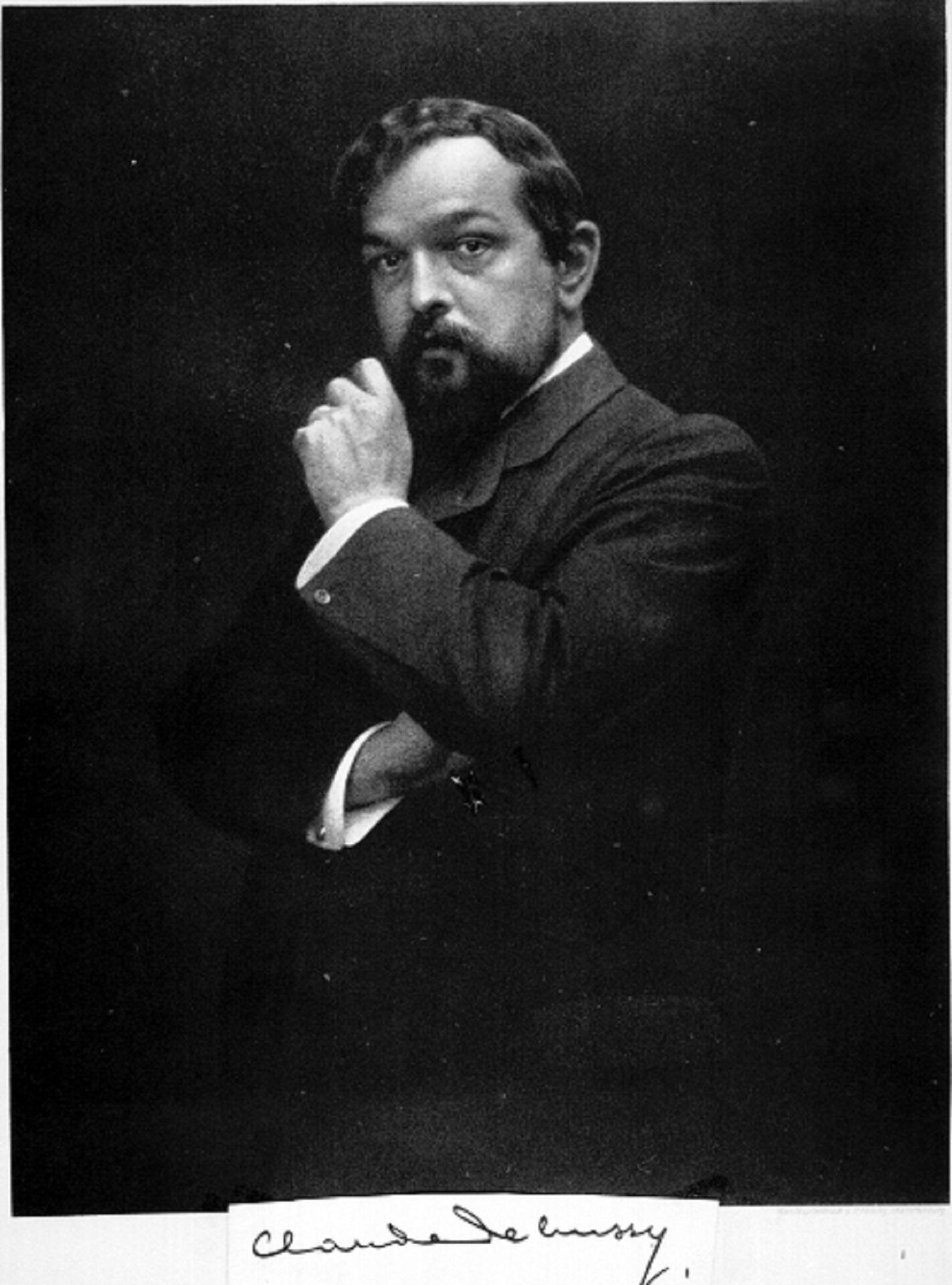
Where to start with Debussy? Prélude à l’après midi d’un faune is definitely worth a listen.
Sergei Rachmaninoff
This virtuoso pianist of the Romantic Era was born in Russia in 1873. He took his first piano lesson at the age of 4 and later attended the Moscow Conservatory.
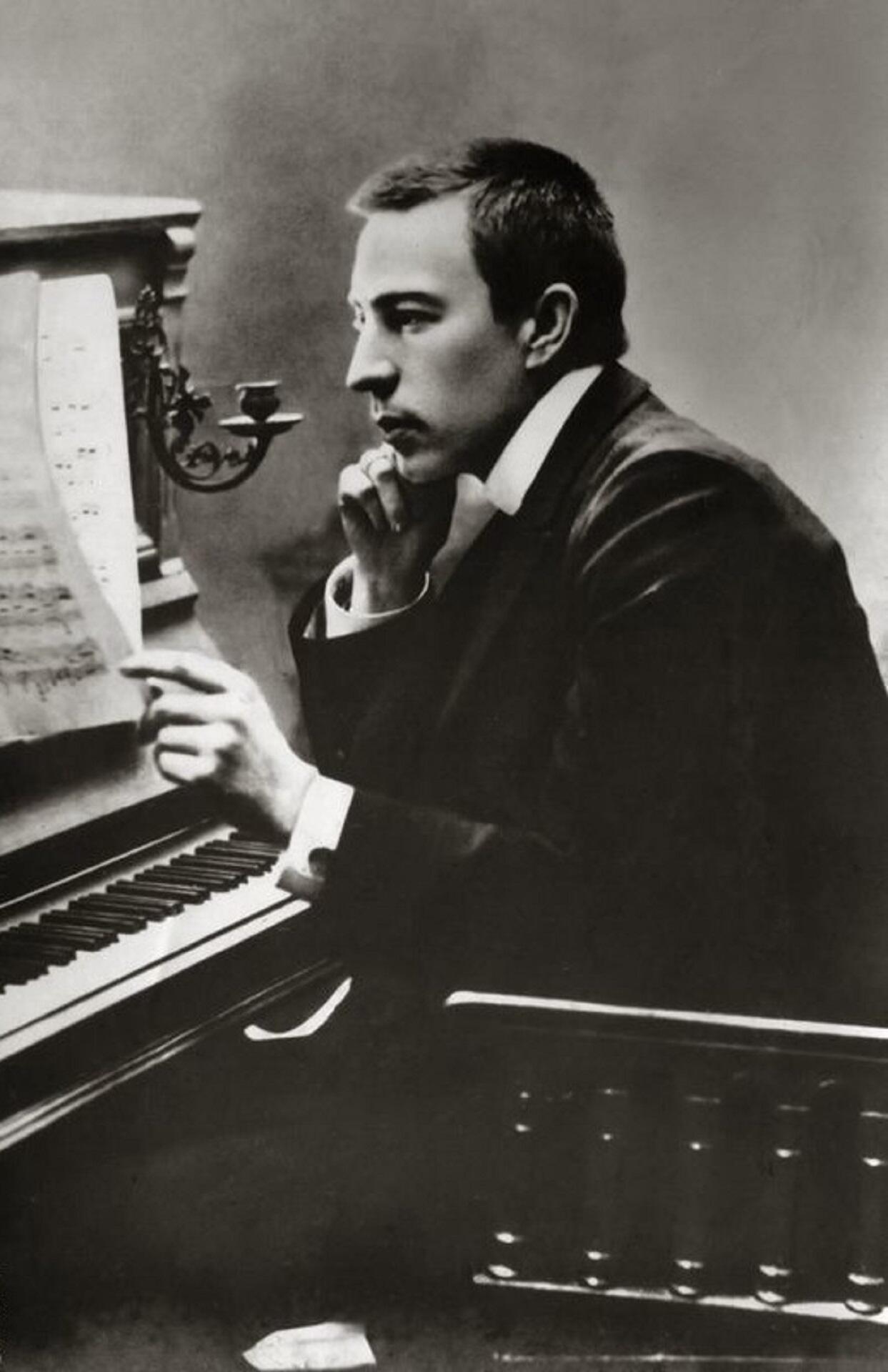
Early and constant success can lead impressionable youths to believe they will always enjoy fame. That wasn't the case for this pianist.
His first production, Symphony Number 1, received bad reviews. That scathing criticism caused Rachmaninoff to suffer years of depression.
He eventually regained enough confidence to tour and perform live. Audiences around the world loved his sound, in stark contrast to his earlier stage appearances. Giving concerts, as a piano player or conductor, became his main source of income.
Rachmaninoff moved to New York following the Russian Revolution. His demanding tour schedule meant he had less time for composing music. Between 1918 and 1943, he completed just six works, including the Rhapsody on a Theme of Paganini, Symphony No. 3, and Symphonic Dances.

Arthur Rubinstein
This Polish-born pianist was born in 1887, the youngest of seven children. One of his older brothers named him Artur, after a musician neighbour. Presumably, baby Rubinstein was to become a musician when he grew up.
Rubinstein's life became a fulfilled prophecy. At just two years old, he already demonstrated perfect pitch. By the time he was four, he was a certified piano prodigy.
At seven years old, he made his concert debut, playing selections by Shubert, Mozart and Mendelssohn. Soon, Artur outgrew all the teaching available in his native country.
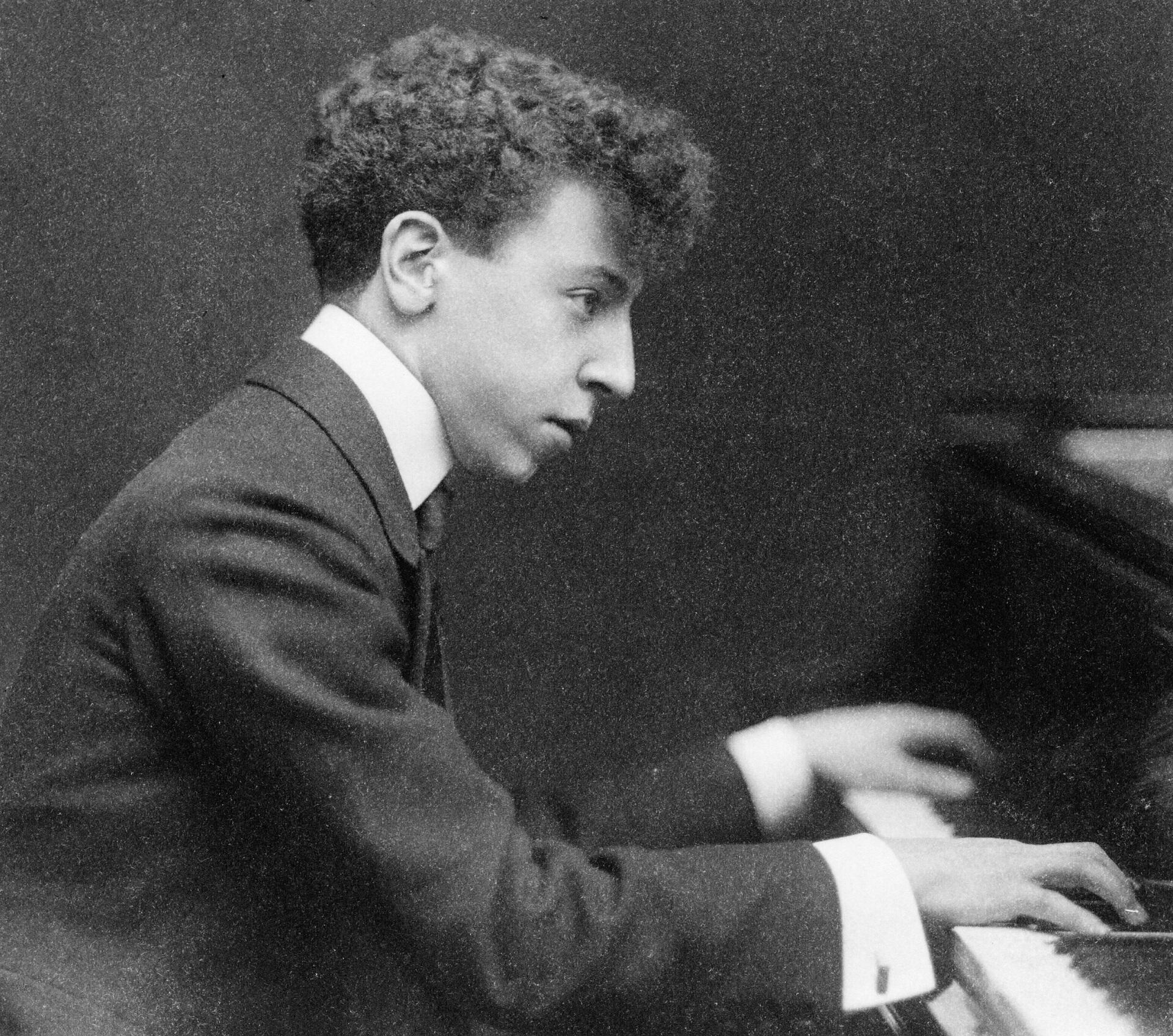
Today, the world recognises Arthur Rubinstein as one of the greatest piano players of all time. He's most revered for his Chopin interpretations, but he played Beethoven, Liszt and Tchaikovsky with equal passion. You could take piano lessons brisbane to become as great a player as Arthur was.
Myra Hess
Sometimes, a piano player's greatness doesn't just revolve around their talent and musicianship. It has to do with their personal goodness, ingenuity and daring. In Myra's case, all of these descriptions apply.
War time is a bad time to be a passionate piano player, as young Myra learnt the hard way. When the Second War started, she came up with a plan. During the London Blitz, she gave lunchtime concerts at venues across the city. Witnesses credit her with helping to save morale during that city's darkest time.
Claudio Arrau
As the story goes, this Chilean-born pianist could read music before he learnt to read words.
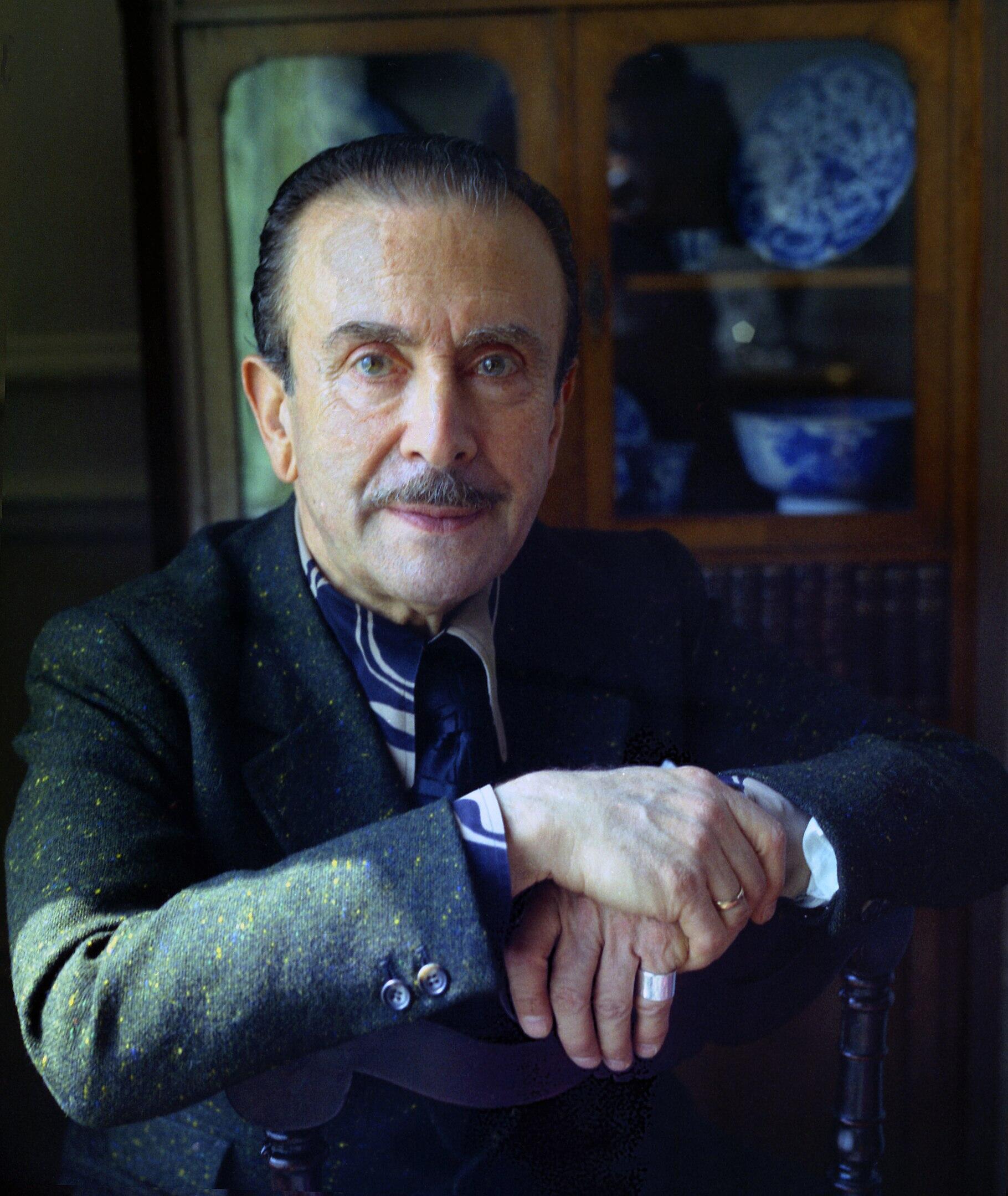
Unlike other virtuosos on our list, Claudio does not come from a long line of musicians. His mother played the piano, but only for her personal pleasure. In fact, it was she who introduced him to the instrument.
Claudio demonstrated his ability to read music when he was four years old. He gave his first concert a year later. His formal music training didn't begin until he was eight, thanks to a scholarship the Chilean government paid for.
Like Rubenstein, Claudio is regarded as one of the most important piano players of the 20th century.
Vladimir Horowitz
Few musicians have achieved Vladimir Horowitz's legendary status in classical music history. This 20th-century virtuoso possessed an unmatched combination of technical brilliance and interpretive genius that elevated piano performance to extraordinary heights.
His approach to Romantic composers—particularly Rachmaninoff, Scriabin, and Liszt—revealed boldly unconventional artistic choices and deeply personal musical storytelling that often challenged traditional expectations.
From intimate salon performances to the world's most prestigious concert halls, Horowitz commanded attention through his remarkable ability to seamlessly blend raw, explosive power with moments of sublime sensitivity and crystalline clarity.
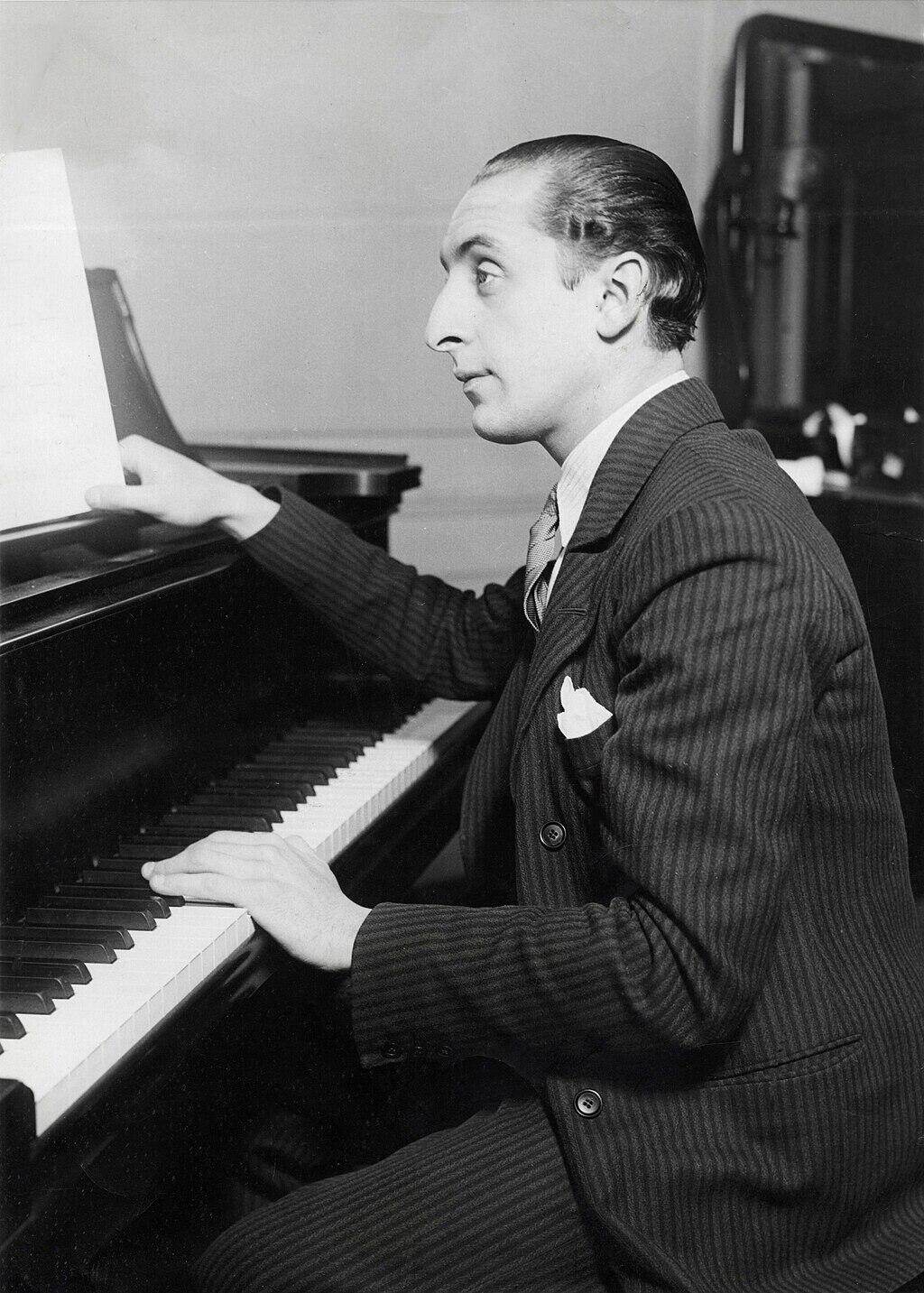
Today, his recorded legacy endures as compelling testament to a revolutionary artist who fundamentally redefined the boundaries of pianistic expression and left an indelible mark on classical performance tradition.
Art Tatum
When discussing piano virtuosos, it's easy to slip into the trap of only mentioning classical pianists. However, there are so many jazz pianists who light up the stage with their virtuosic improvisation and sparkling talents.
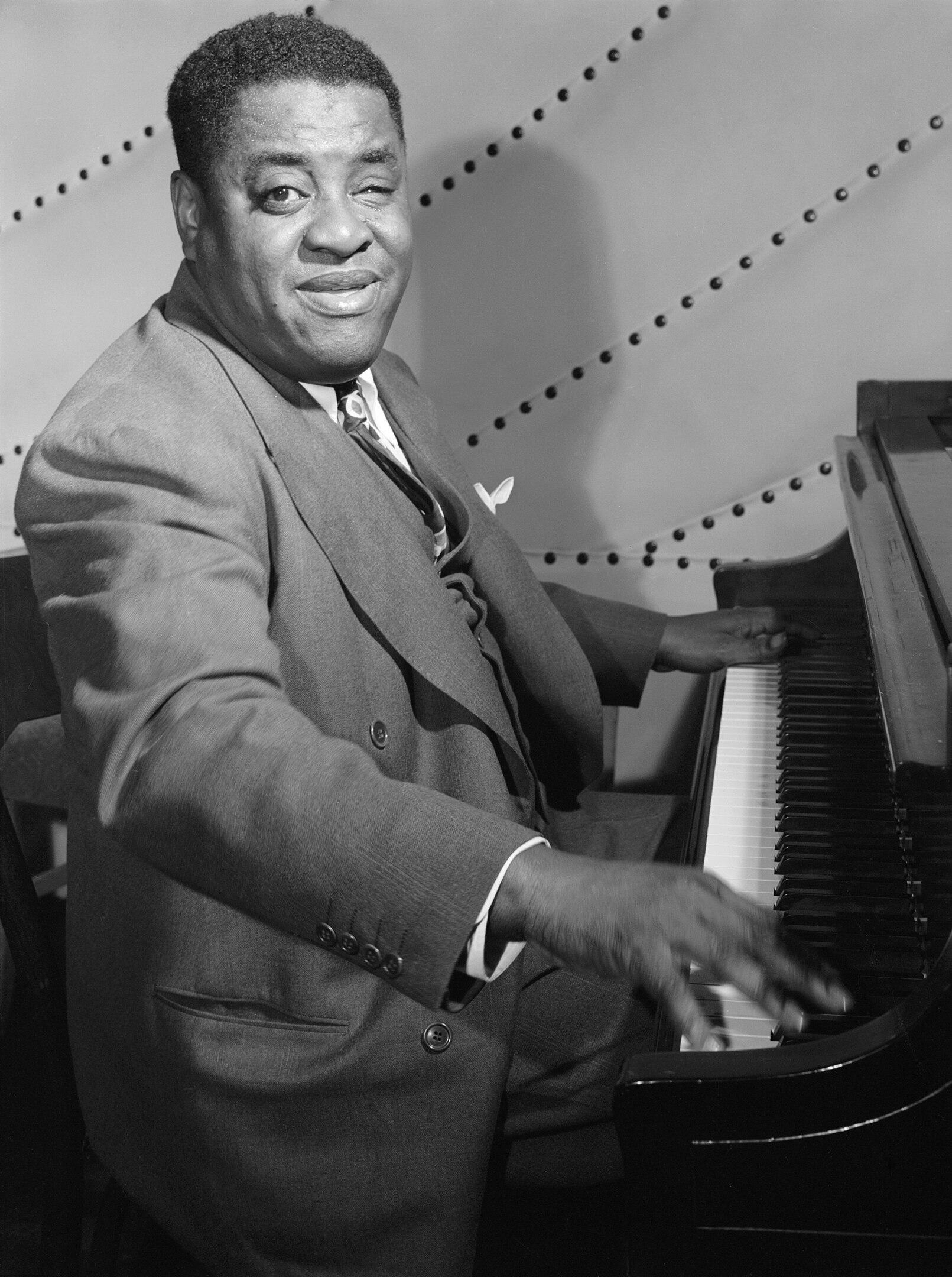
Art Tatum, it could be argued, is not only one of the greatest jazz pianists ever but also one of the most talented pianists of any genre.
Tatum is partially blind; he learnt how to play the piano using braille. One evening during one of his performances, Fats Waller commented on his musicality: “I only play the piano, but tonight God is in the house”.
Blessed with a brilliant musical ear, Tatum brought an unconventional technique and undeniably mesmerising energy to his piano performances.
There's an old rumour that says Lester William Pollfuss (Les Paul, more familiarly) originally dreamed of becoming a jazz pianist. After hearing Art Tatum play, he decided to focus on the guitar as he became convinced he could never match Tatum.
He had a unique 'straight finger' style, rather than allowing his fingers to curve over the keyboard
Tatum's version of I Got Rhythm is unmissable for jazz and piano fans alike. If you're taking piano lessons in Sydney, you might ask your teacher to demonstrate how Art played.
Martha Argerich
We could have filled our list with only long-dead composers; Still, it's important to include contemporary pianists. In that spirit, we present Martha Argerich.
A piano prodigy, Argerish began studying at the age of 2. By the time she was 8, she was playing Beethoven’s Piano Concerto No. 1 in C Major perfectly.
At age 14, she moved to Europe to study with some of the world's most famous pianists. Only two years later, she won two music awards back-to-back.
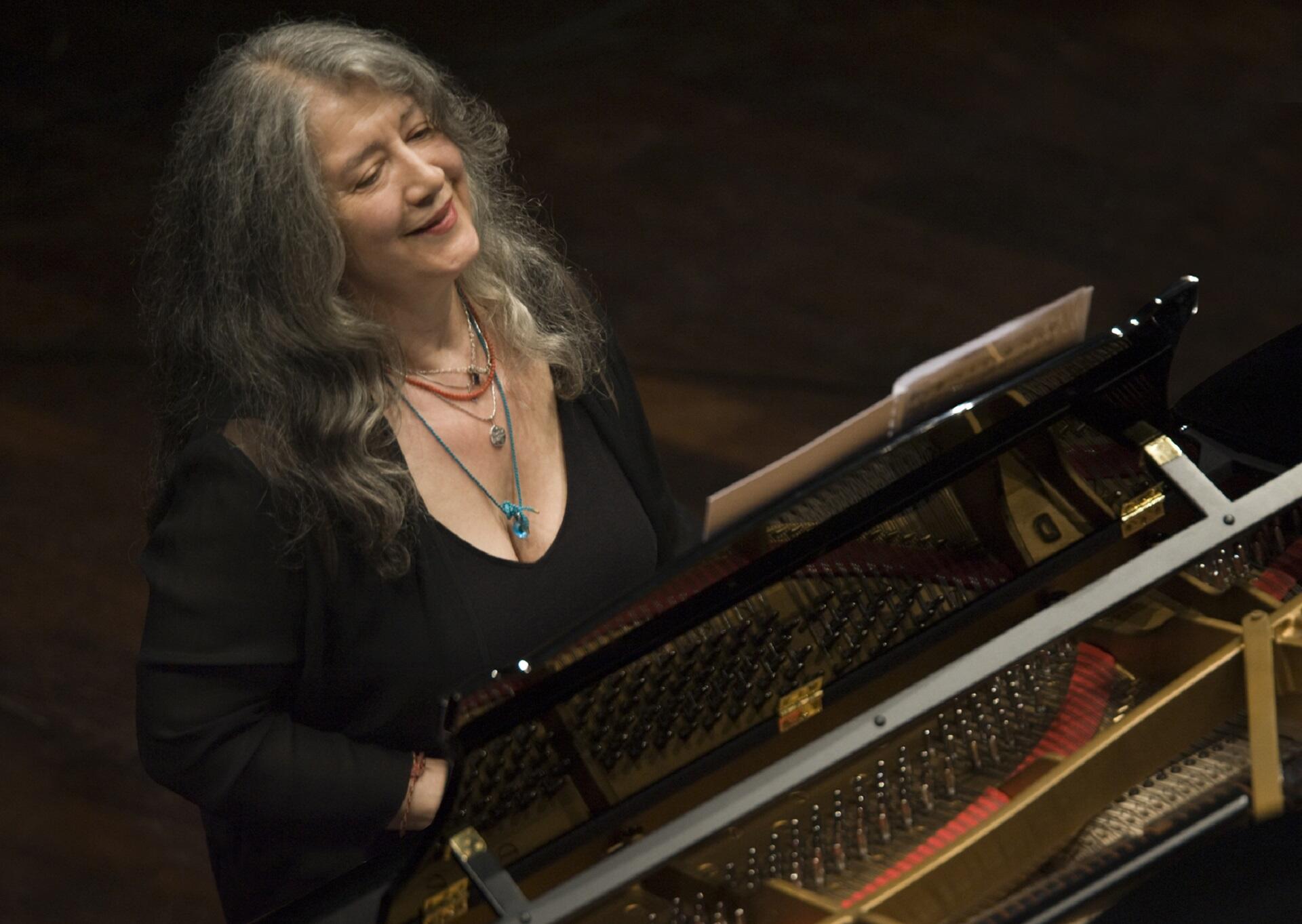
After earning the Ferruccio Busoni International Piano Competition and the Geneva International Music Competition awards, Martha Argerich took a three-year break from the piano and thought about giving it up altogether. The music world is so glad she didn't!
Check out her rendition of Maurice Ravel's Piano Concerto in G major.
David Helfgott
David Helfgott is perhaps best described not simply as a virtuoso, but as one of the most inspirational pianists ever. Known for his expressive playing and his extraordinary personal journey, Helfgott rose to international fame after the release of Shine (1996), a biographical film that follows his life from a gifted child to a celebrated artist.
Born in Australia, David Helfgott displayed prodigious talent from an early age, winning scholarships and training under renowned teachers in London. That said, his relatives have since spoken out, claiming the movie misrepresented both David and the family dynamic. Some also believe that his lifelong mental health challenges may have been inaccurately diagnosed.
Regardless, Helfgott’s triumphant return to the concert stage and his global performances are proof of his enduring spirit. His story serves as a powerful example: with passion, persistence, and the right guidance—whether through formal training or piano lessons online—any aspiring pianist can unlock their own potential.
Michel Petrucciani
As long as we have one jazz piano player, why not two, especially when one of them is Michel? This extraordinary player, born in 1962, was among the most accomplished and celebrated pianists of his generation.
Born into a musical family, he lived with brittle bone disease all his life. Despite his bones breaking from the least bit of stress put on them, he vowed he would play the piano like Duke Ellington. He gave his first professional concert when he was 13, playing a specially modified piano. His short stature and disfigurement put many off, but his playing brought them right back.
Lang Lang
Lang Lang’s journey to global acclaim began in China, inspired not by formal training but by a cartoon that ignited his love for the piano. Born to musician parents, he began lessons at age three and gave his first public recital at five, quickly earning a reputation as a gifted and disciplined young performer.
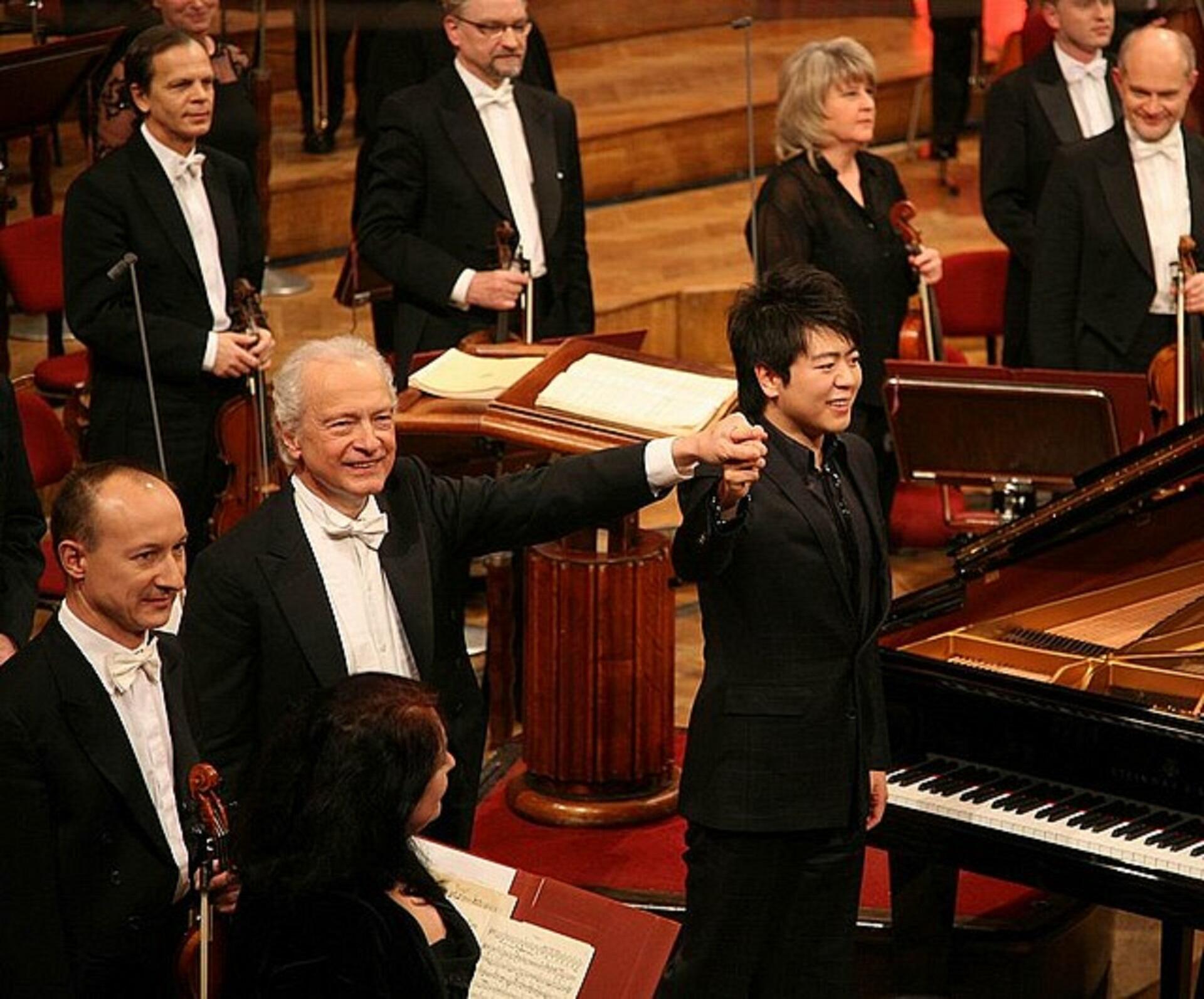
Yet not all early experiences were encouraging. One teacher harshly dismissed him as having “no talent” and dropped him from lessons entirely.
Devastated, Lang Lang nearly gave up. But a schoolteacher recognised something special. She asked him to play Mozart, restoring his confidence and rekindling his passion for music.
Lang Lang became the first Chinese pianist to perform with both the Vienna and Berlin Philharmonic orchestras. Today, he tours internationally, collaborates with major orchestras, and champions classical music through education and media, determined to connect new generations with the power and beauty of the piano.
These 16 pianists have each left an enduring mark on the world of music, shaping how we understand and experience the piano today. Their influence stretches far beyond performance, inspiring generations of musicians and listeners alike. For more on the works they helped popularise and the figures who shaped the instrument’s history, explore our guide to famous piano pieces and composers.
Summarise with AI:

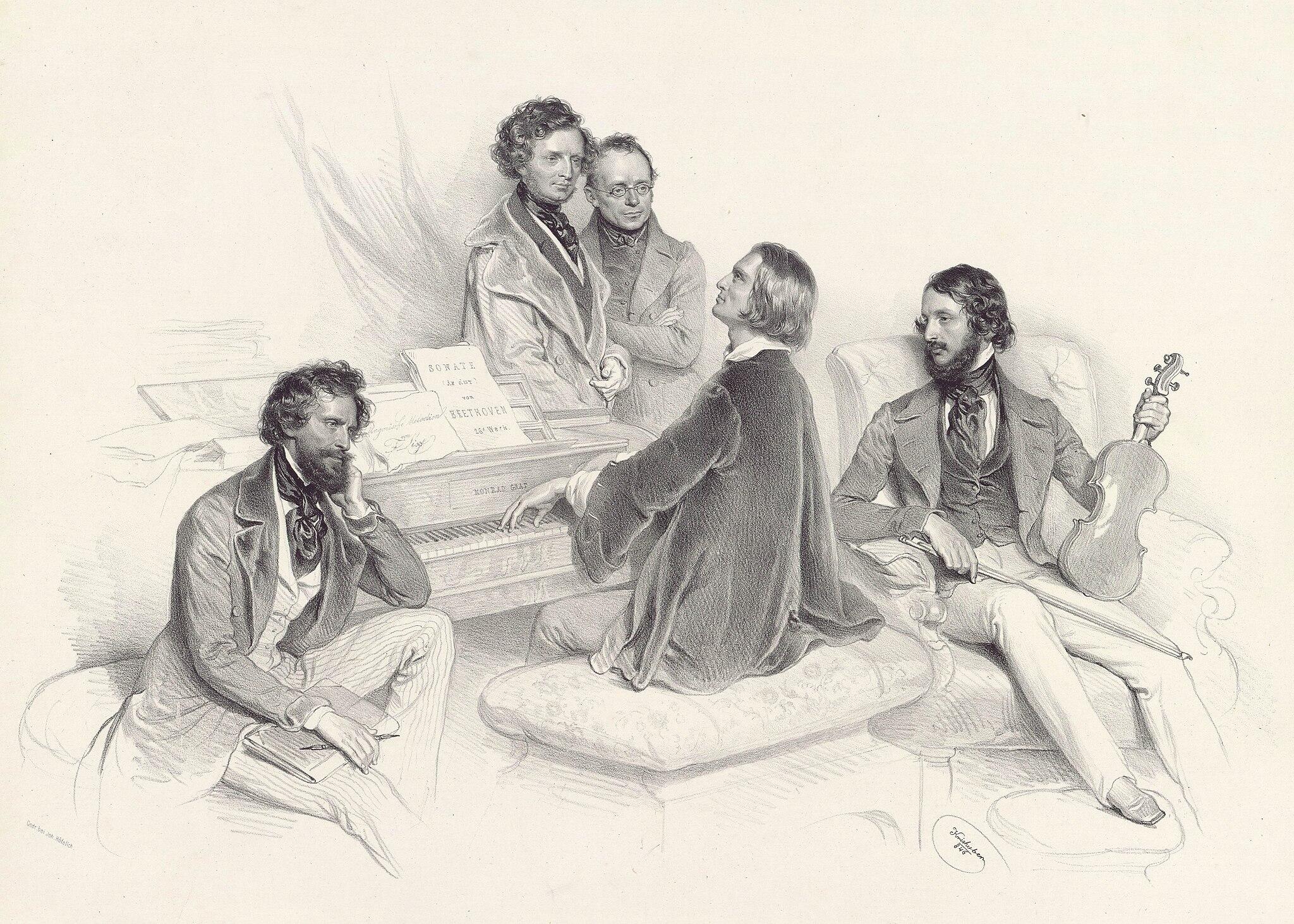













I’d love to know where I can obtain the score for piano sonatas numbers 33, 34 and 35!
Thanks
You mean Beethoven?
Yes
No. 32 is Beethoven’s final piano sonata.
So Beethoven composed 32 piano sonatas and not 35?
It is unlikely that you or anyone else has the encyclopedic familiarity with vinyl and CD recordings, on-line recordings, and live performances necessary to determine who the greatest pianists are. Furthermore you’re trying to objectify an art that is intrinsically subjective. Lastly what gives you the right to be an arbiter of taste and musicianship?
Poor Horowitz. Not good enough
Nelson Freire never gets on these lists. Neither did Horowitz (on yours).
1.Rachmaninoff 2,Listz……
Really, Mozart the greatest composer? Great he was but not the greatest. Rachmaninoff and Chopin deserve that accolade. And you failed to list Horowitz as the greatest pianist of all time?